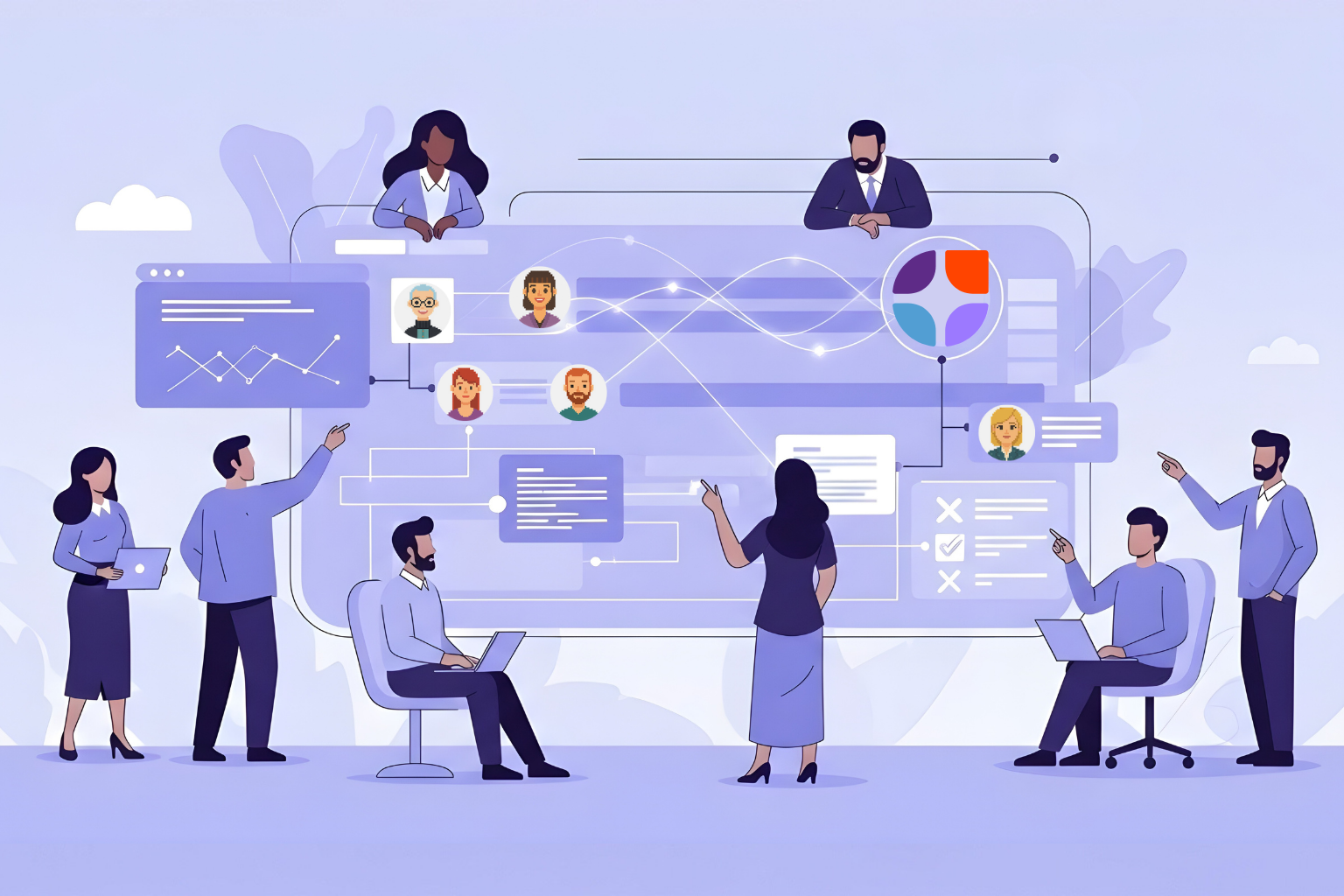5 Practical Examples of AI Agents in Everyday Business

1. Sales Assistant – Qualify Leads Faster & Create Proposals
How an AI agent works in sales:
- Automatically analyzes incoming leads using scoring models.
- Identifies promising contacts based on data like company size, industry, or past interactions.
- Creates personalized proposals at the push of a button and sends follow-ups tailored to the potential customer’s behavior (e.g., email clicks or whitepaper downloads).
Practical Example:
A B2B SaaS provider implemented a sales agent that automatically prioritized the most valuable leads. Within six months, the conversion rate increased by 22%. At the same time, the proposal process sped up by about 30% – valuable time that sales teams could use for personal consultations.
👉 Learn more: AI Agents vs. Traditional Chatbots – The Differences
2. HR Agent – Streamlining Recruitment
An HR agent takes over these routine tasks:
- Automatically filters incoming applications and matches them with job requirements.
- Creates a shortlist of suitable candidates and forwards it to the HR department.
- Coordinates interviews, sends invitations, and reminds candidates of appointments.
- Continuously informs applicants about the status of their application process.
Practical Example:
A mid-sized machinery manufacturer used an HR agent to speed up the application process. The result: open positions were filled 25% faster on average. Applicants also found the process significantly more transparent and professional – positively impacting the employer’s image.
👉 Further reading: How to Implement AI Agents Securely and GDPR-Compliantly
3. IT Support Agent – Automating Standard Requests
IT support is often overwhelmed in many companies. Even simple routine tasks like password resets or software installations consume resources and extend waiting times.
How an IT support agent helps:
- Automatically identifies standard problems (e.g., “forgot password”) and resolves them independently.
- Installs software or updates without manual approvals.
- Creates and prioritizes tickets in the IT system for more complex issues.
- Documents all processes for transparency and traceability.
An international consulting firm introduced IT support agents to handle simple requests directly. Result: The average processing time dropped from 2 hours to 15 minutes – while IT staff were relieved of repetitive tasks.
4. Compliance Agent – Reliable Document Review
A compliance agent ensures security:
- Automatically analyzes contracts and documents.
- Flags potential violations of GDPR, internal policies, or industry-specific standards.
- Creates audit trails for traceability and governance.
- Suggests actions, such as adjustments to contract clauses.
An insurance company used a compliance agent to review over 1,200 contracts monthly. Result: The average processing time dropped from 45 minutes to 18 minutes per document – and the rate of detected violations increased significantly.
👉 Further reading: How to Implement AI Agents Securely and GDPR-Compliantly
5. Customer Service Agent – Personalized Real-Time Support
A customer service agent makes this possible:
- Accesses customer data like order history, open tickets, and past interactions.
- Formulates responses tailored to the individual context.
- Resolves simple service cases immediately and forwards complex issues to the appropriate employee.
An online retailer implemented a customer service agent to handle inquiries in real time. Result: Response times were reduced by 50%, while the Net Promoter Score (NPS) increased by 18 points.
Business Impact at a Glance
Measurable Benefits:
- 30–40% higher productivity through automated routine processes.
- Up to 70% fewer manual errors thanks to intelligent data processing.
- Faster response times in customer interactions and internal workflows.
- Improved employee and customer experiences.
Conclusion
AI agents are a reality – and they are noticeably transforming everyday business. Whether in sales, HR, IT, compliance, or customer service: wherever repetitive processes dominate, they unleash their full potential. Companies that test and implement these technologies now gain not only efficiency but also the foundation for a future-proof organization.
Book a Demo Now to experience live how AI agents automate your processes.
Download Whitepaper “Successfully Implementing AI Agents in Your Company.”
FAQ
In which areas are AI agents particularly worthwhile?
The fastest results are seen in sales, HR, IT support, compliance, and customer service.
Do AI agents replace employees?
Can small businesses benefit too?
What technical requirements are there?
Are AI agents GDPR-compliant?
How do I get started?
What risks are there?
Follow us on LinkedIn